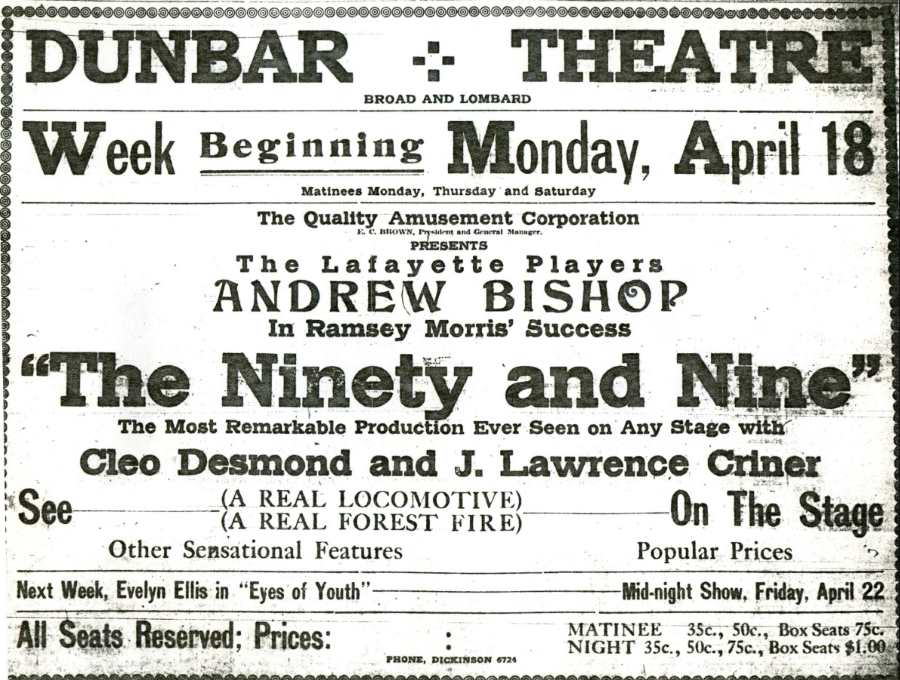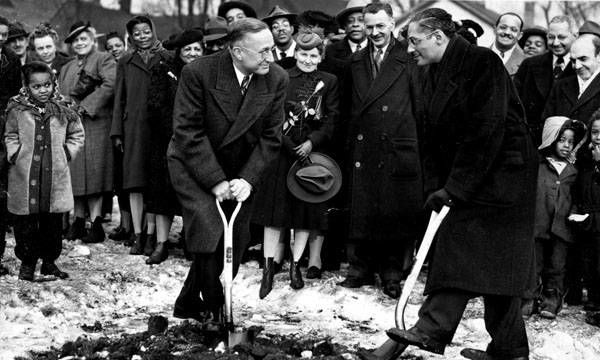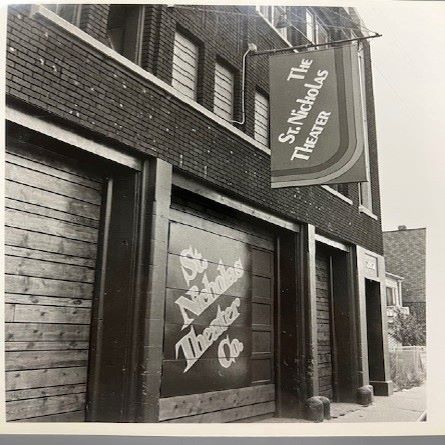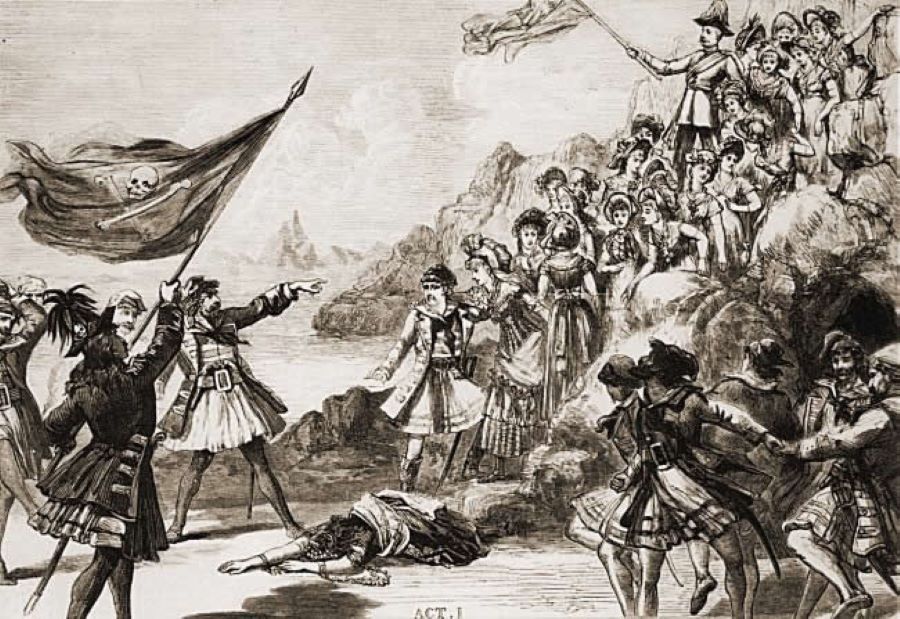1879 (145 years ago)
William S. Gilbert and Arthur Sullivan’s The Pirates of Penzancehad its world premiere on New Year’s Eve at the Fifth Avenue Theatre in New York City—the only Gilbert & Sullivan operetta to debut in the United States (it opened in London the following April). It was an immediate success in New York and quickly spawned three U.S. tours, with Pirates playing alongside Gilbert & Sullivan’s previous wildly popular opera H.M.S. Pinafore. The original production saw Alice Barnett as Ruth, J. H. Ryley as Major-General, and John Clark (a.k.a. Signor Broccolini) as the Pirate King. The show would be one of the most produced Gilbert and Sullivan shows, with multiple movie adaptations and countless popular culture parodies and adaptations well into the 21st century, including a “rethinking” by Rupert Holmes at Roundabout Theatre in spring 2025.

1919 (105 years ago)
After facing racial discrimination from Philadelphia’s Forrest Theater, E. C. Brown and Andrew Stevens Jr., prominent African American bankers, opened the first theatre built and owned by African Americans. The first production there was Within the Law, by a New York-based group, the Lafayette Players. The theatre was named after the influential 19th-century Black poet Paul Lawrence Dunbar. In the first few years, the theatre was successful, hosting benefits for the NAACP and bringing in African American performance artists from around the Northeast. However, by 1921 Brown and Stevens were forced to sell the theater to Black theatrical producer John T. Gibson, who renamed the space Gibson Theater and operated it alongside his space the Standard.

1949 (75 years ago)
Cleveland-based Karamu House opened a new playhouse a decade after a fire razed the original establishment. Inspired by the Black Little Theatre Movement, Oberlin College graduates Russell and Rowena Woodham Jelliffe founded a settlement house in Clevaland’s Roaring Third district in 1915 as a place for people from all races and backgrounds to come together in community. In 1917 they introduced plays. The playhouse was officially named Karamu House in 1941, after the Swahili word for “a place of joyful gathering.” Karamu House has been a creative hub for African American performance artists and writers for the last century, with the likes of Langston Hughes, Zora Neale Hurston, Lorraine Hansbury, and James Pickens frequently visiting and producing work there. Today Karamu House is recognized as the longest-producing African American theatre in the nation.

1974 (50 years ago)
Playwright David Mamet, screenwriter and director Steven Schachter, and actors Patricia Cox and William H. Macy founded the St. Nicholas Theatre in Chicago. Their first show as a new company was the world premiere of Mamet’s American Buffalo, which would go on to win an Obie award for best play in its New York run. In its short eight years of operation, St. Nicholas Theatre was a home for Midwest premieres of Wendy Wasserstein’s Uncommon Women and Others and Lanford Wilson’s The Fifth of July, as well as world premieres of several Mamet plays. In addition to producing full seasons of modern and classic plays, St. Nicholas also served as a hub for educational theatre programming, including a full series of children’s plays. Additionally, their School for Theater Arts offered training courses for young actors. The theatre shut down in 1982; Macy and Mamet would co-found New York City’s Atlantic Theater Company in 1985.
1999 (25 years ago)
Citing safety concerns due to an intense influx of people into Manhattan for New Year’s Eve, the New York Police Department requested that all Broadway performances be cancelled on Dec. 31. Though every New Year’s Eve is a large celebration in Times Square, the excitement over ringing in a new millennium—and various conspiracy theories surrounding Y2K—meant the 1999 celebration would be larger and potentially more chaotic than usual. The NYPD was so concerned about the crowds that they requested this New Year’s Eve cancellation a full six full months in advance.
Support American Theatre: a just and thriving theatre ecology begins with information for all. Please join us in this mission by joining TCG, which entitles you to copies of our quarterly print magazine and helps support a long legacy of quality nonprofit arts journalism.


